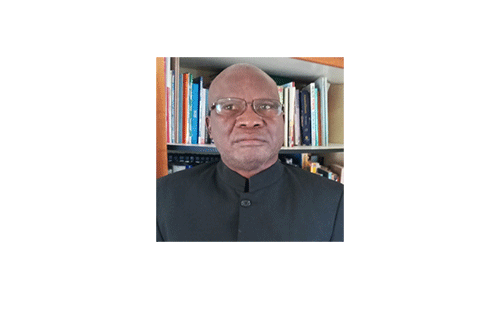It is usually said that ‘what goes around comes around’, but perhaps in the current Namibian situation should be the other way round – that ‘what comes around goes around’.
This has to do with the Odendaal Commission of 1963, which created Bantustans in Namibia.
The main mission of the Commission was a mandate of political manipulation of Black Namibians, rather than economic development.
This meant to create divisions among the people in order to weaken the African spirit of fighting for their independence and freeing themselves from the yoke of colonialism. This mandate was imminent and obvious, as many African states were independent – and South Africa was afraid of ‘the wind of change’.
The former British Prime Minister Harold Macmillan in February 1960, in Cape Town, in the South African whites-only Parliament, warned that “The wind of change is blowing through this continent – and whether we like it or not, this growth of national consciousness is a political fact. We must all accept it as a fact, and our national policies must take account of it”. His prophetic words were true, as all African countries have obtained their freedom and independence today.
To fight the Balkanisation of Namibia by the mission of the Odendaal Commission, many Namibians crossed the borders and went into exile to wage the war of liberation.
Among other things, the war of independence was to unite all Namibians from all walks of life at all levels nationwide.
The country tried to walk the talk of nationalism immediately after independence, despite resistance here and there, but the spirit of oneness seems to evade the nation. One issue that is testing the strength of nationalism is the appointment and election of traditional leaders in some communities.
There are many unresolved community conflicts from all corners of the republic, emanating either from the appointment of a new chief or succeeding the one who passed on. This problem has trickled at the level of indunaship in many communities, where community members fail to come together and resolve these issues. Cases take years without any solution in sight, and the conflicts persist in the process.
Issues of development remain stagnant, as people cannot find a common forum or platform for discussions.
The community members who fail to solve their conflicts through the laid down mature and acceptable procedures have themselves to blame. What triggered all these conflicts immediately after the attainment of nationhood? This situation of traditional conflicts is real and seems to embrace the whole country, except for a few communities.
Of late, the head of state raised his concern about the multiplication of traditional leaders or chiefs through applications. If these applicants indeed originated from recognised lines of chiefs, one may ask what happened to their chiefdoms.
There have been claims and counterclaims – and in some cases blaming the colonialists for abolishing their chiefdoms. It may be true, but what about those who stood the test of time despite the harassment that went with colonialism?
Yes, Namibia is free and democratic, but does that mean every community of about three hundred members should have a chief? If that is the case, how many chiefs is Namibia going to have at the end of the day?
Moreover, will the taxpayer be able to foot the bill of so many prospective chiefs? The problem lies with the procedures in which some chiefs have been appointed and elected.
The current power that be has been blaming the colonialists for interfering in the affairs of the traditional leaders, but it does not show that the current authorities are not doing the same thing. Many chiefs have been accorded the chieftainship status through applications, immediately after independence through political manipulation.
The issue of losing identity being put forward by some communities does not hold water, as these people have been living together as one ethnic group and got along very well peacefully.
Yes, there could be genuine cases, where the communities were fighting for recognition before independence but could not attain it for one reason or another.
The Bafwe-Bayeyi combination could have been the case, but before dropping the latter part, it is assumed that the elders and intellectuals of the group were consulted. But what is significant among many groups is that most of the community members are related through intermarriages.
Nationalists believe that one way of uniting the nation is through intermarriages.
Furthermore, communities who are applying to break away from other groups have lived together for a long time in the same area, farmed together and helped one another in many ways.
Yet despite these connections and even being part of the royal houses, the urge to break looms among some members of these communities.
What is luring some people to go ahead with such ideas of breaking away?
Maybe the temptation of recognition in the hope that some members will be appointed to ministerial positions, like during the colonial period when Bantustan ministers were appointed along tribal lines. In nationalism, political leaders are elected into positions through the majority vote.
So, if communities want to make any developmental impact, the best method is to unite at all levels to have the voice of the majority.
Balkanisation will not take any community anywhere if community members fail to come together and talk with one voice.


